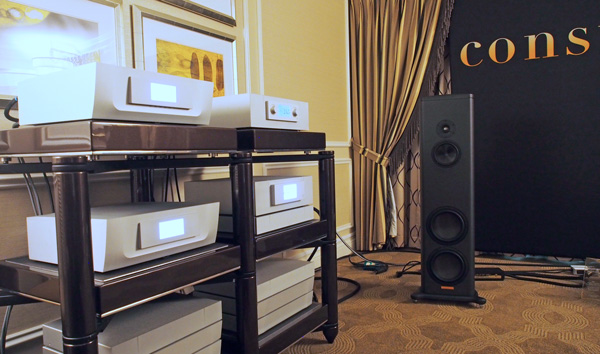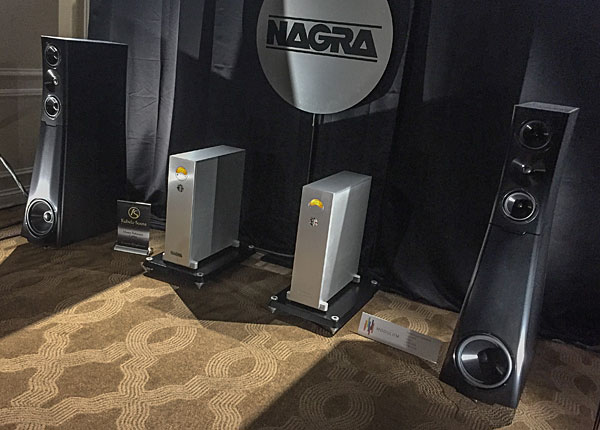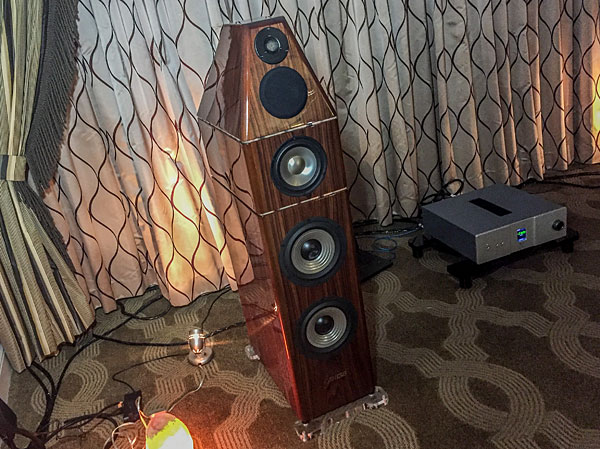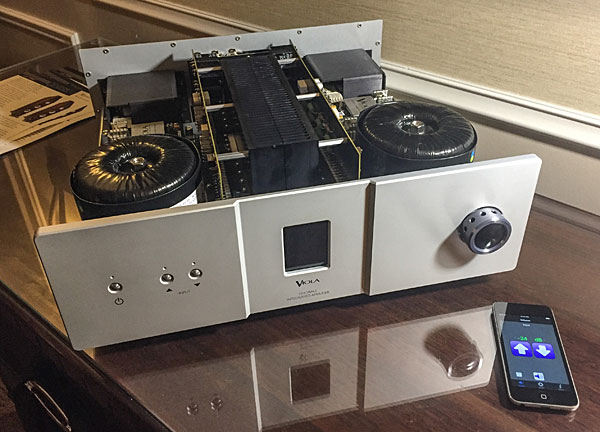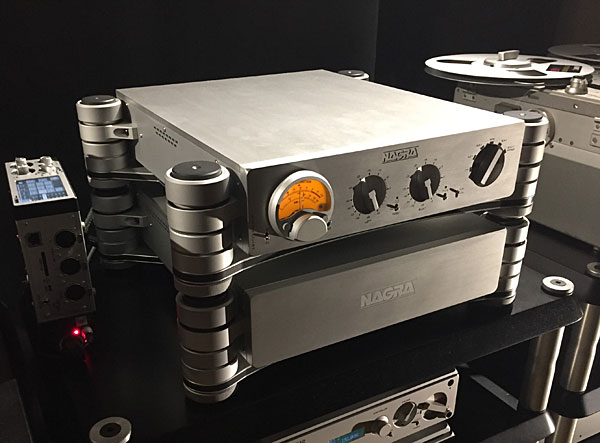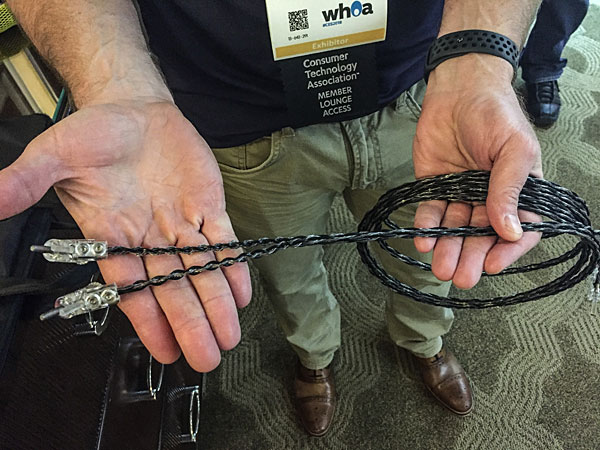LATEST ADDITIONS
CES 2018 Confounds Expectations
The question, "What if they Gave a CES and Nobody Came?," which headlined my As We See It from mid-2016, was echoed by a similar title on Jon Iverson's opening blog for our coverage of CES 2018. Yet hopes and fears that our industry's increasingly limited presence in the Venetian would sound the death knell for "high performance audio" at CES do not reflect the experience of those who this year chose to either exhibit or wander hallways and eateries in search of dealers and distributors.
Chord's Million-Tap Digital Filter
A Stellar Constellation
YG Acoustics Sonja 2.2 Loudspeaker
HiFiMan Sundara and Shangri-La Jr. Headphones
First, for the entry level, is the new Sundara planar headphone which will retail for $499. Josselin Marvie from HiFiMan explains that "We spent some time designing this headphone to be more reliable and comfortable, so we have a new headband design which is more lightweight as well. We also have new cups, and everything has been redesigned to make the headphone last longer."




